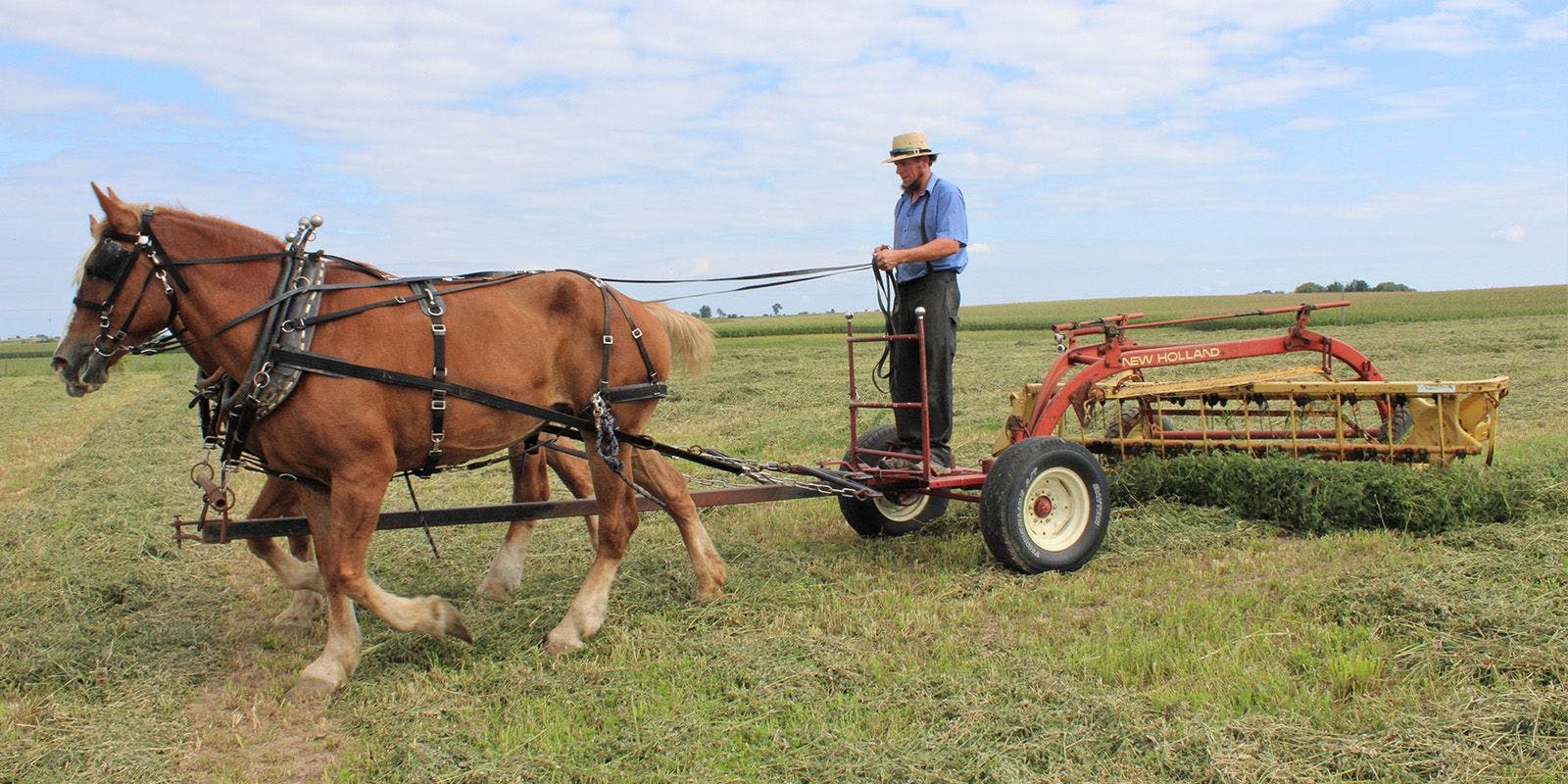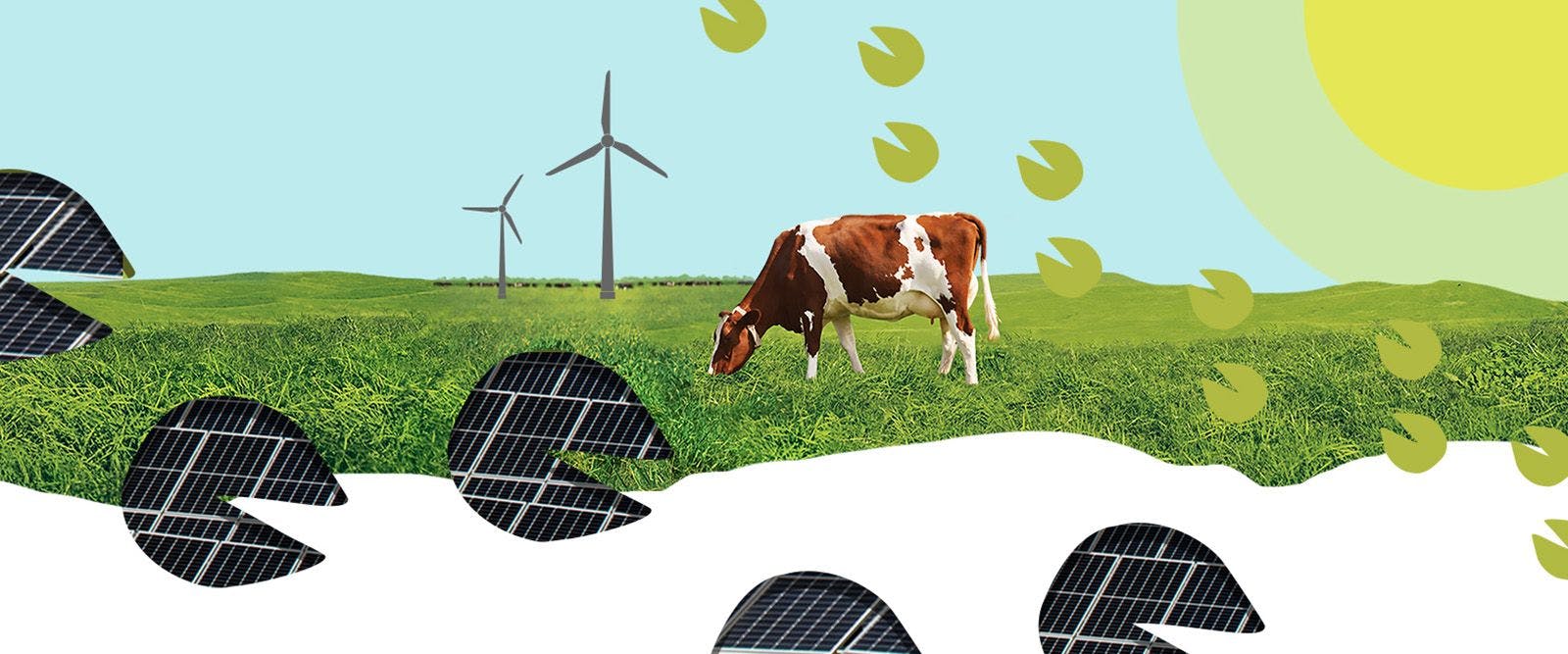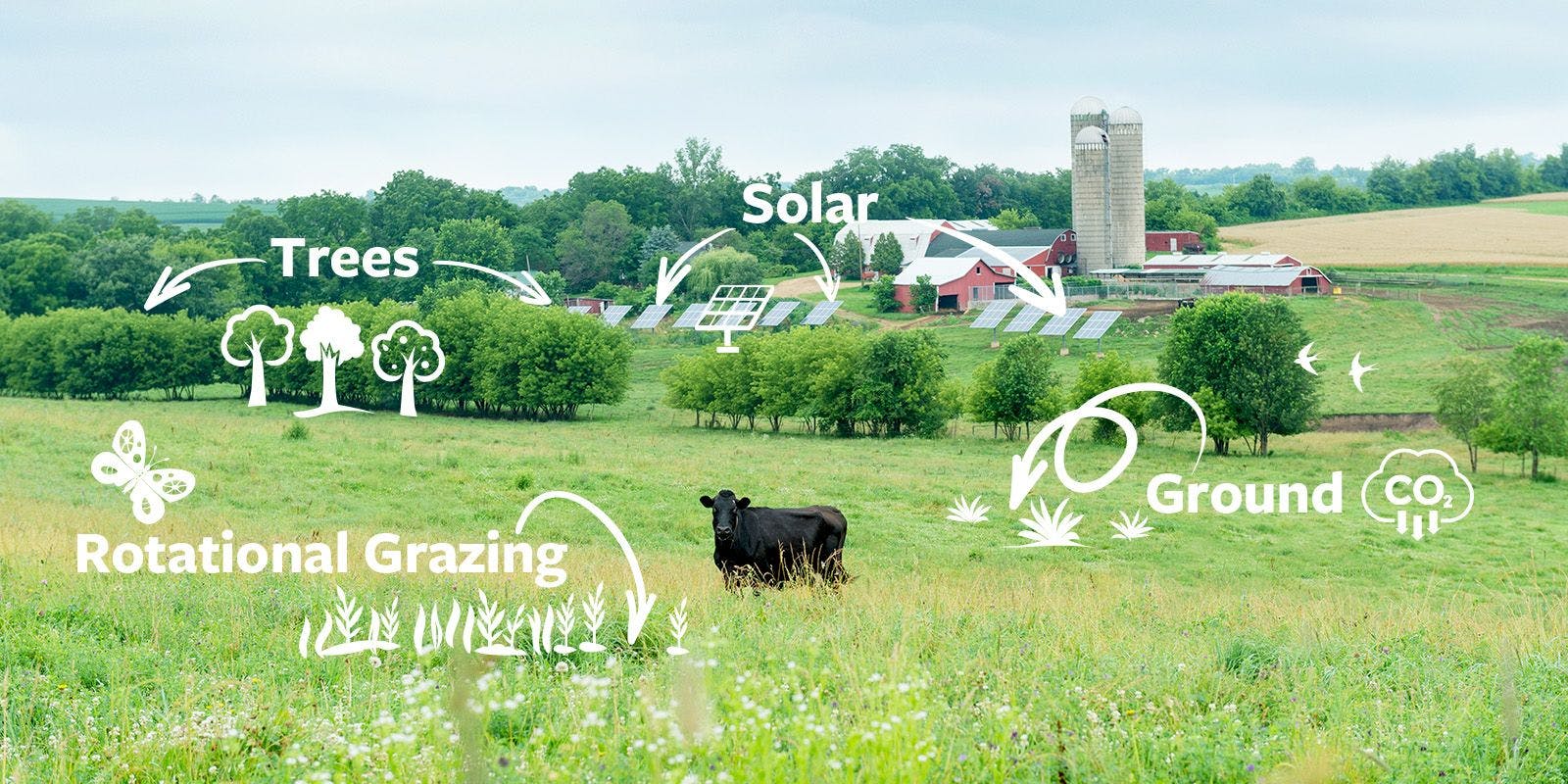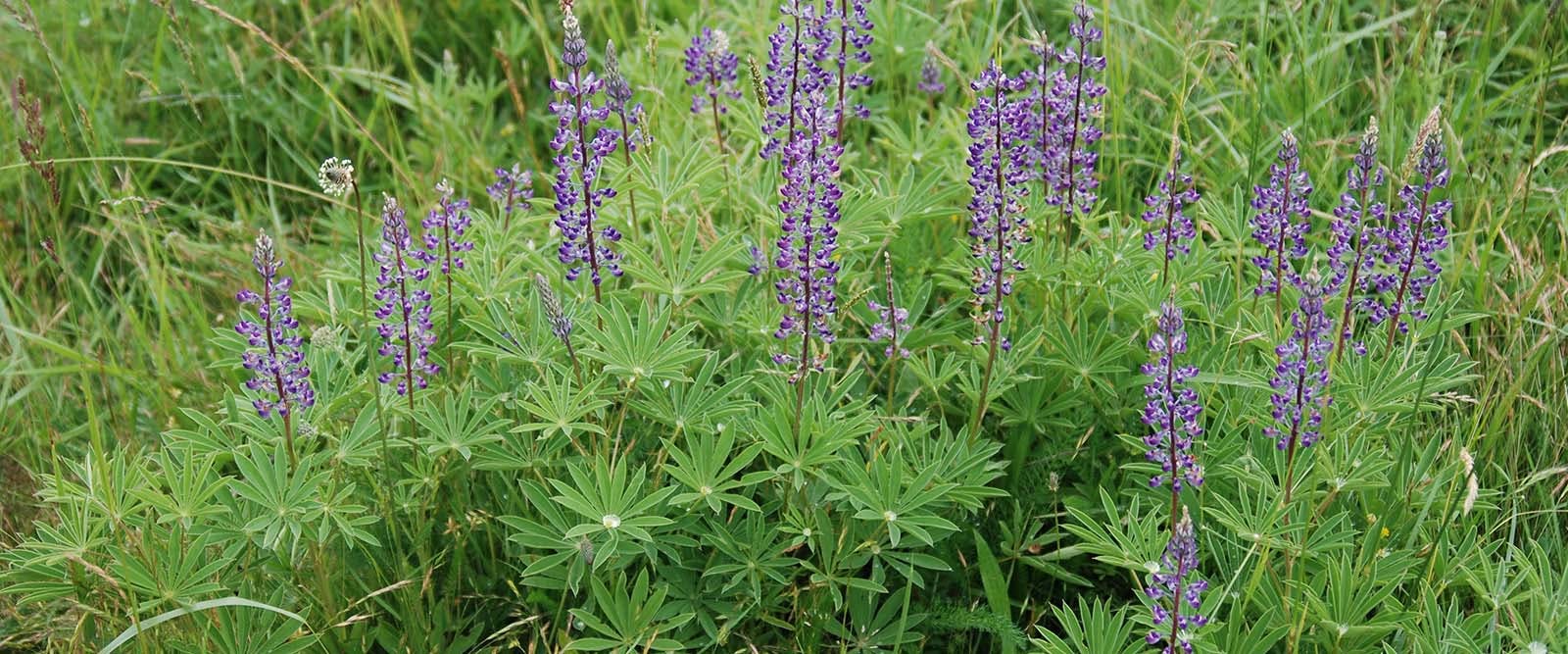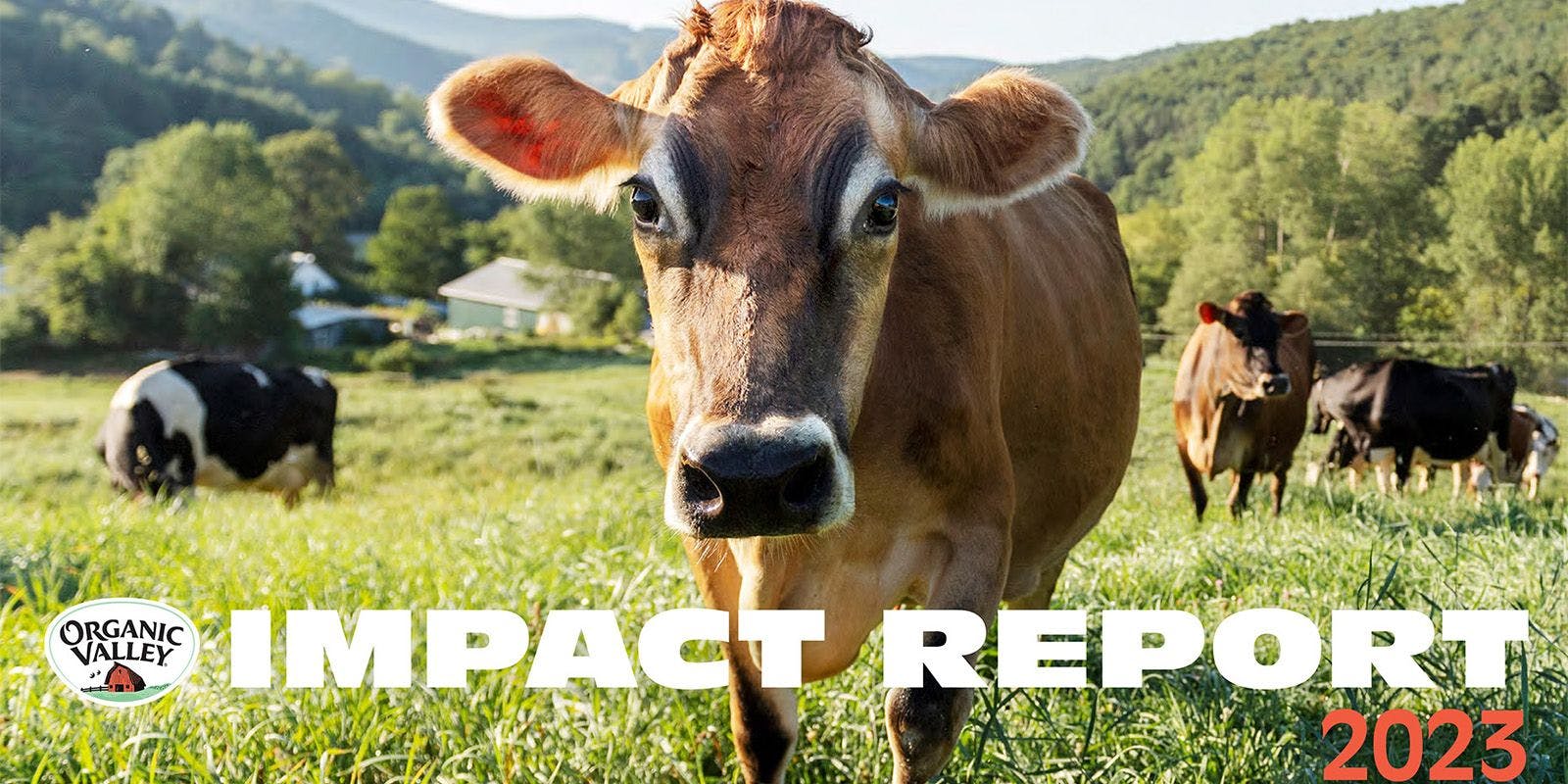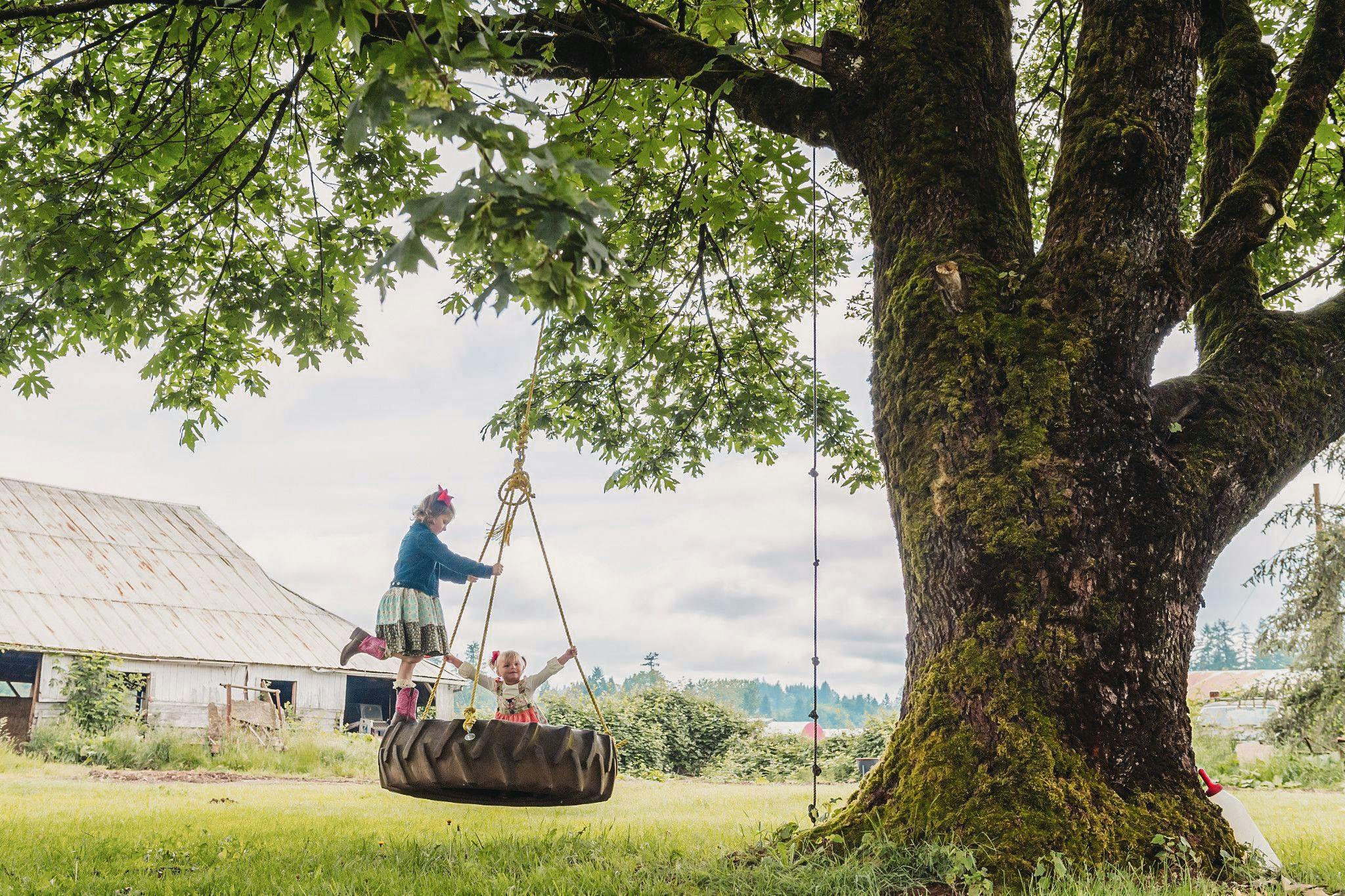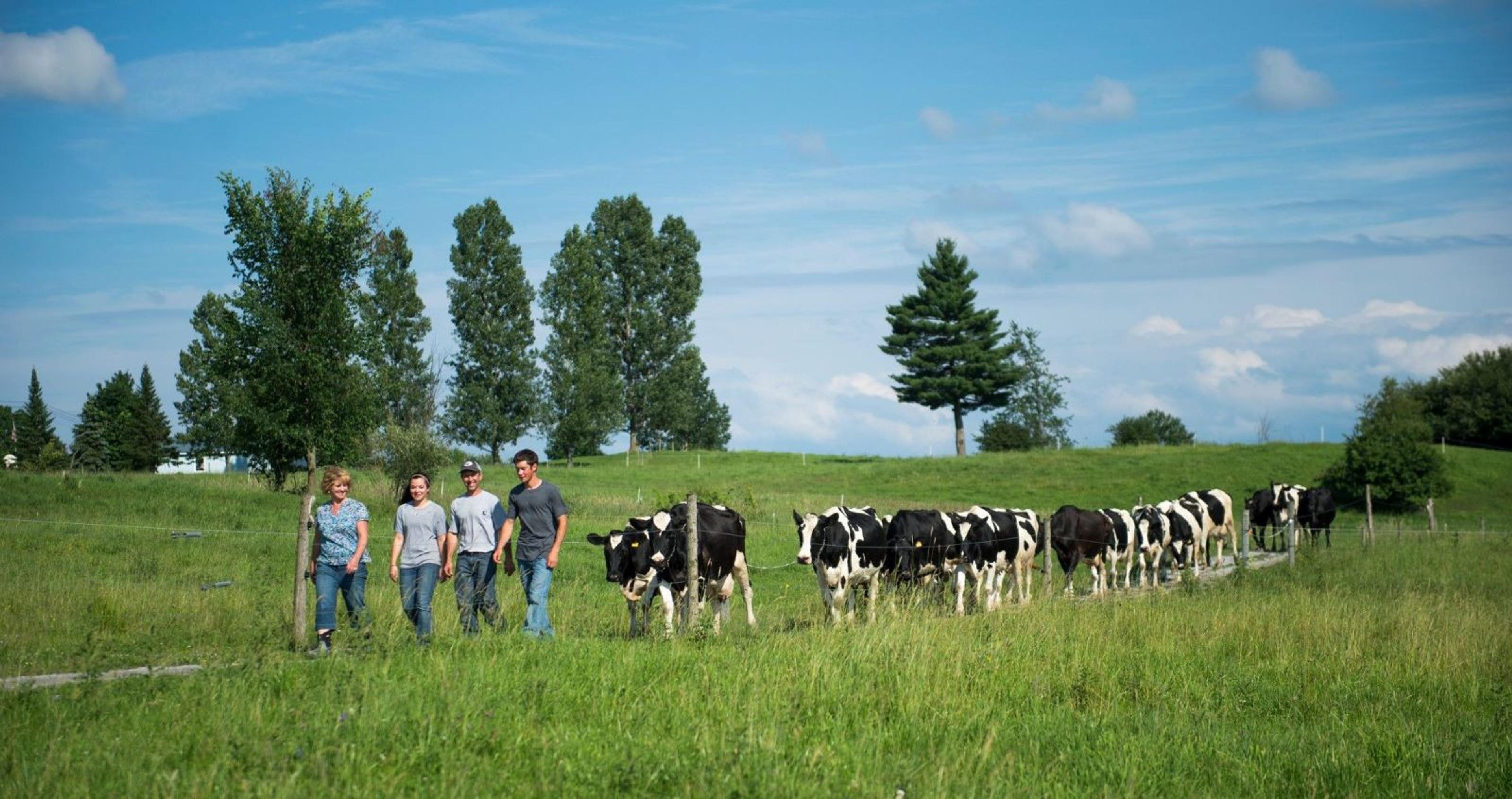
Rooted
Vermont Family Farm an Inspiring Legacy; Receives Conservation Award
Organic Valley farmers Guy and Beth Choiniere and family, Vermont, are the 2021 New England Leopold Conservation Award® recipients.
Given in honor of renowned conservationist Aldo Leopold, the prestigious award recognizes those who inspire others with their dedication to land, water and wildlife resources.
Sand County Foundation and national sponsor American Farmland Trust present the Leopold Conservation Award to private landowners in 23 states for extraordinary achievement in voluntary conservation.
Congratulations Choiniere family and thank you for all that you do!
Addressing Environmental Issues
Guy Choiniere believes the health of the soil is the health of the farm. This land ethic drives his actions on a dairy farm that’s been in the Choiniere family since 1945.
While navigating changes in the farm economy, climate and farming practices, the Choiniere Family Farm has become a model of innovation and adaptability for other New England dairies.
Located 4 miles from Quebec, Canada, Choiniere Family Farm’s 242 acres of farmland and 70 acres of woodland is crossed by the Rock River and its tributaries. Soil health and erosion control practices have kept the farm productive and resilient despite an increase in severe storms, rainfall and periods of drought in northwest Vermont.
Guy’s parents, Henry and Raymonde, placed a conservation easement on the farm and sold its development rights before transferring it to him and his wife Beth in the 1990s. A generation later, Guy and Beth’s children, Matt and Hannah, farm with them. The Choinieres sell beef, milk, pork, chicken, eggs, honey and baked goods at a store located on their farm.
Prompted by an unstable market for conventional milk in the 1990s, Guy studied and then transitioned to organic production. It’s a move he said was good for his cows, land, and bottom line. A few years later he seeded 25 acres of corn to permanent hay and pasture in order to convert his herd to 100% grass-fed. That move fetched an even better price for their organic milk.
After taking over the farm, Guy also began addressing environmental issues with assistance from the U.S. Department of Agriculture Natural Resources Conservation Service. The conservation plan he developed remains a work in progress.
To prevent soil erosion and improve water quality, the Choinieres planted 5,000 trees along banks of the impaired Rock River. They also conveyed a 51-acre river corridor easement that designates an area where the river can meander naturally. The land can still be farmed, but the river will not be dredged. The river’s 12,000-foot bank is also lined with a 50-foot naturally vegetated buffer.
Keeping nutrients on the farm and out of the river was also aided when Guy switched from conventional liquid manure storage to an innovative compost bedded pack system. During the winter the cows are fed hay in large hoop barns designed to mimic the comfort and atmosphere of being on pasture. Excess hay provides bedding and catches manure before being trod down into compost. When the cows resume rotational grazing in May, pigs are let into the barns to root around and expedite the composting process before it is spread on fields as nutrient-rich fertilizer. Guy is an ambassador to help other dairies manage bedded pack systems.
Guy is also an instructor for the Champlain Basin Watershed Initiative. This partnership between Vermont, New York and Quebec educates elementary school teachers participating in a course called A Watershed for Every Classroom. The teachers are then equipped to teach their students – future stewards of Lake Champlain – how agricultural conservation practices address water quality issues.
Choiniere Family Farm participates in Vermont’s roadside sign program that identifies conservation practices like rotational grazing, cover crops, no-till and streamside plantings. The Choinieres, who were Vermont’s Conservation Farmers of the Year in 2009, are the first New England Leopold Conservation Award recipients from the Green Mountain State.
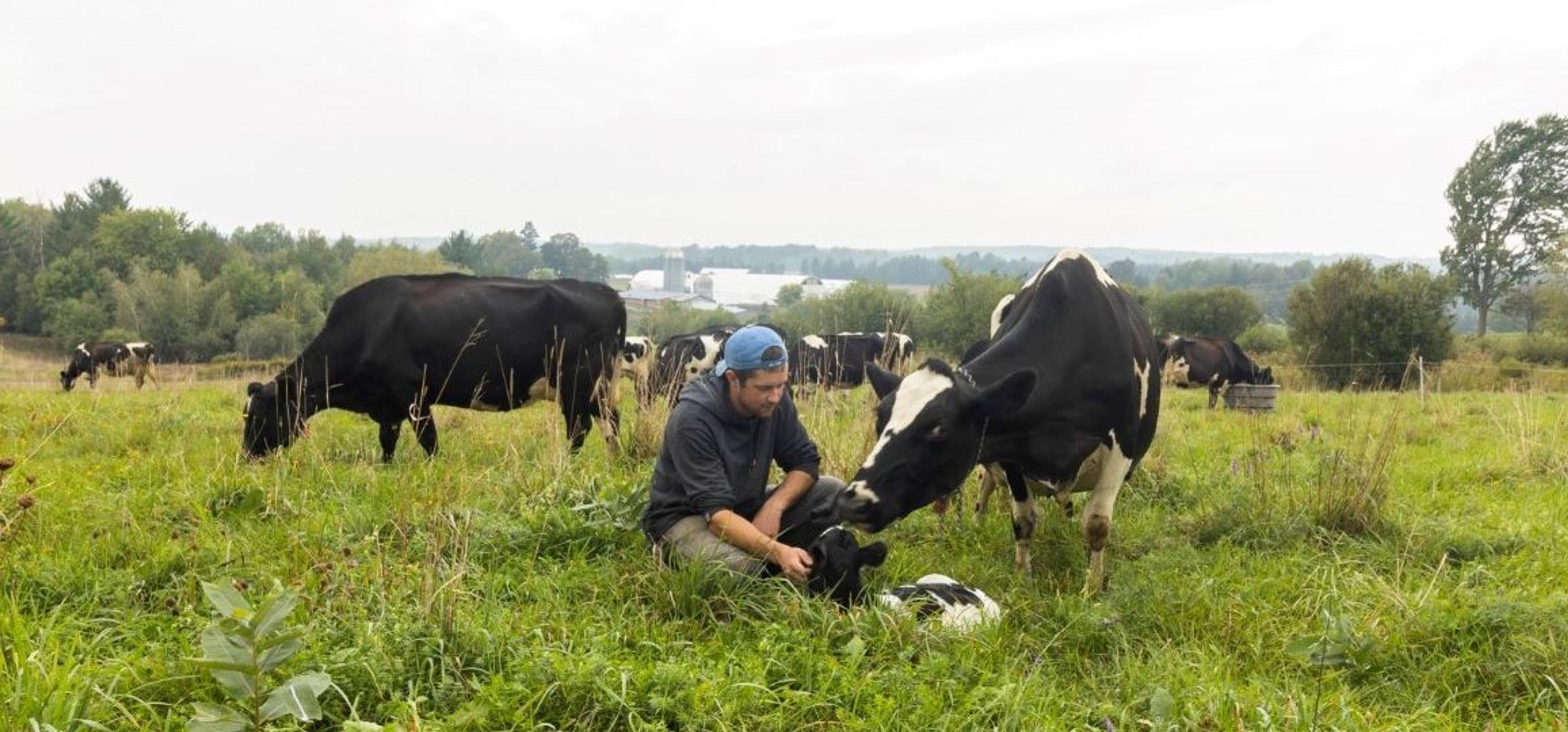
Matt Choiniere pets a calf on his family farm in Vermont.
Ethical Relationships Between People and Land
Sand County Foundation presents the Leopold Conservation Award® annually in 23 states with a variety of conservation, agricultural and forestry organizations.
In his influential 1949 book, A Sand County Almanac; Aldo Leopold called for an ethical relationship between people and the land they own and manage. He wrote it was “an evolutionary possibility and an ecological necessity.”
“Recipients of this award are real life examples of conservation-minded agriculture,” said Kevin McAleese, Sand County Foundation president and CEO. “These hardworking families are essential to our environment, food system, and rural economy.”
The New England Leopold Conservation Award is made possible through support of American Farmland Trust, New England Forestry Foundation; Wildlands, Woodlands, Farmlands and Communities; Sand County Foundation, Farm Credit East, David and Ann Ingram, Yale School of the Environment and Whole Foods.
The Choinieres receive $10,000 and a crystal award for being selected.
* Information provided by the Sand County Foundation.
"The Choinieres embody so much of the ethos and practice that Aldo Leopold taught and modeled, for generations. I cannot think of a more fitting way to celebrate two inspiring legacies than by recognizing the Choiniere Family Farm with the 2021 Leopold Conservation Award."
- Highstead Foundation senior conservationist Spencer Meyer
Related Articles
- Tags:
- water,
- climate,
- environment,
- farm life,
- land stewardship & conservation,
- organic & sustainable living,
- nutritional ecology,
- regenerative agriculture,
- soil health & science,
- biodiversity,
- making an impact













